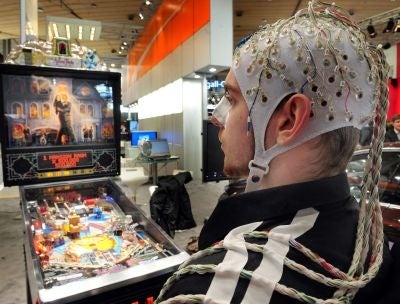Psychopaths wired to seek reward at any cost

The brains of psychopaths could be hardwired to seek reward even when the consequences are life-threatening to others or themselves, according to a study released Sunday.
A naturally-occurring chemical, dopamine, plays a key role in some forms of pathologically violent behaviour and drug addiction, the study found.
Previous research has focused on what psychopaths tend to lack - fear, empathy and the ability to maintain normal relationships.
But a team led by Joshua Buckholtz of Vanderbilt University in Nashville, Tennessee examined what there is too much of, namely impulsiveness and an extreme attraction to risk-taking and rewards.
"Lack of sensitivity to punishment and a lack of fear are not particularly good predictors of violence or criminal behavior," said colleague and co-author David Zald.
The new data, published in Nature Neuroscience, suggests that psychopaths "have such a strong draw to reward - to the carrot - that it overwhelms the sense of risk or concern about the stick," he said.
The key may be dopamine, a neurotransmitter known to affect cognition and behaviour, especially related to motivation, punishment and gratification.
Cocaine, alcohol and nicotine all stimulate the brain's dopamine circuits.
Other pathological states linked to dopamine dysfunction include autism, schizophrenia, and attention deficit hyperactivity disorder (ADHD).
"Psychopaths are often thought of as cold-blooded criminals who take what they want without thinking about consequences," Buckholtz said.
"We found that a hyper-reactive dopamine reward system may be the foundation for some of the most problematic behaviors associated with psychopathy, such as violent crime, recidivism and substance abuse."
The evidence came from brain scans of volunteers ranked according to their psychopathic traits through psychological testing.
Violent criminals were at the far end of the spectrum, followed by normally functioning persons who were nonetheless manipulative, aggressive and risk-takers.
In the first experiment, positron emission tomography, or PET, imaging was used to measure dopamine release in the brain after the participants had been given a dose of amphetamine, more commonly known as "speed".
"Our hypothesis was the psychopathic traits are also linked to dysfunction in dopamine reward circuitry," Buckholtz said.
As predicted, the drug triggered the release of nearly four times as much dopamine in people at the high end of the psychopathy scale.
In the second test, volunteers were told they would receive money for completing a simple task. Their brains were scanned via functional magnetic imaging, or fMRI, as they did so.
Once again, in those individuals scoring high on the ranking, the dopamine-related reward centre in the brain was far more active than in the other participants.
"It may be that because of these exaggerated dopamine responses, once they focus on the chance to get a reward, psychopaths are unable to alter their attention until they get what they're after," Buckholtz said.
"With these two very different techniques, we saw a very similar pattern - both were heightened in individuals with psychopathic traits," he added.
mh/bm
Subscribe to Independent Premium to bookmark this article
Want to bookmark your favourite articles and stories to read or reference later? Start your Independent Premium subscription today.

Join our commenting forum
Join thought-provoking conversations, follow other Independent readers and see their replies